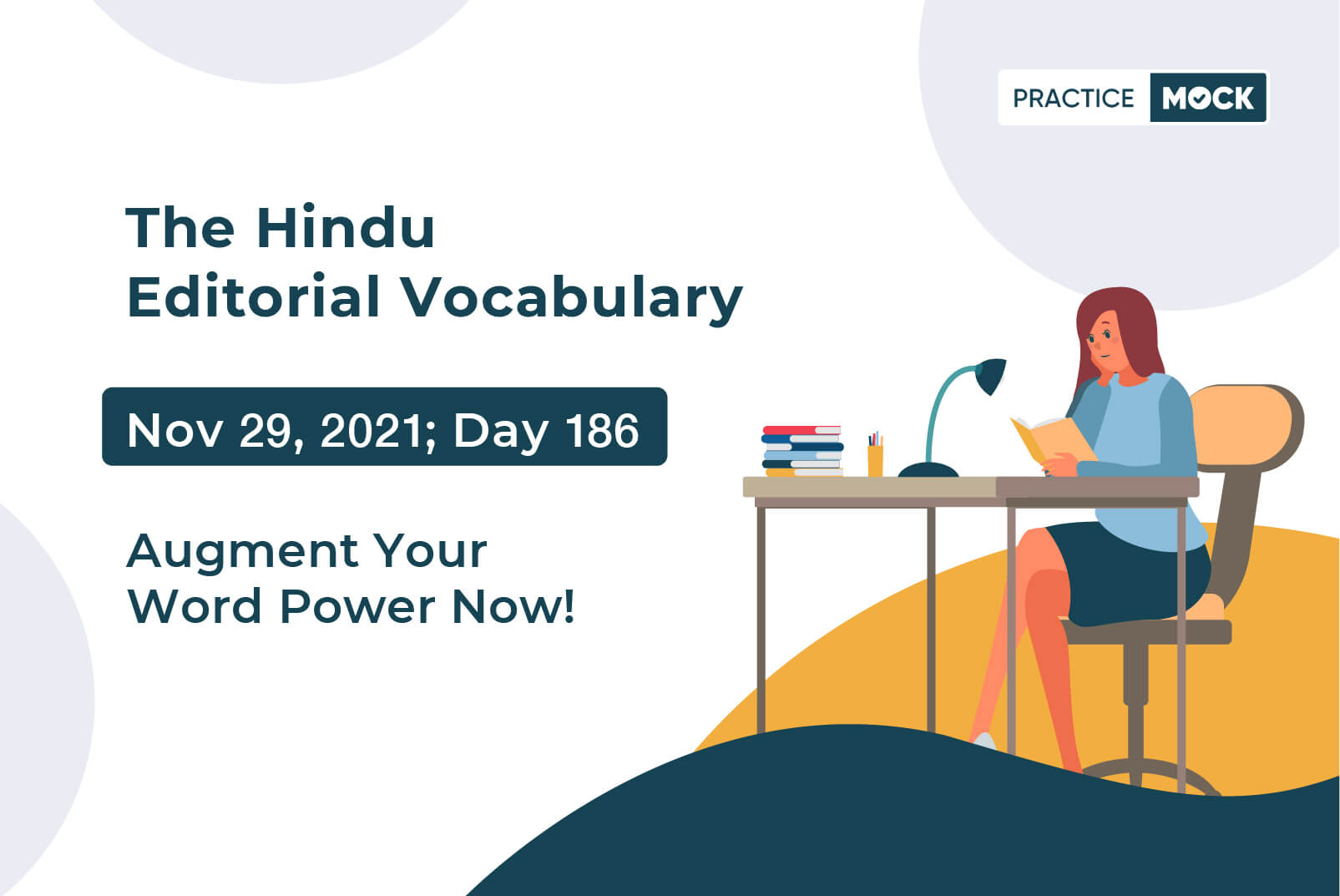| Difficult Word/ Phrase | Contextual Sense |
| Apposite | very appropriate; suitable for the occasion or situation |
| Earmark | Give or assign a resource to a particular person or cause |
| Backdrop | The context and environment in which something is set |
| Circumscribe | Restrict or confine within limits |
| Anomalous | Deviating from the general or common order or type |
| Creamy layer | some members of a backward class who are highly advanced socially as well as economically and educationally |
| Impediment | Something that interferes with (or delays) action or progress |
| Prevailing | Most frequent or very common |
| Pool | A group of individuals or companies formed to transact some specific business or to promote a common interest |
| Alleviation | The act of reducing something unpleasant |

Questionable criterion: On EWS quota income limit
The SC is right in asking for basis on which Centre fixed income limit for EWS quota
The questions raised by the Supreme Court of India about the criteria for identifying the ‘Economically Weaker Sections’ (EWS) for the purpose of granting reservation are quite apposite (very appropriate : suitable for the occasion or situation). Faced with sharp questions that it could not answer satisfactorily, the Union government has obtained time to reconsider the criteria, especially the income norm that only those from a family with annual income less than ₹8 lakh can avail of the 10% reservation earmarked (Give or assign a resource to a particular person or cause) for the EWS category. It is now a settled principle that quantifiable data or proof of a detailed study are required to justify any category of reservation, as well as the norms that determine which section gets it and which does not. In this backdrop (The context and environment in which something is set), it is logical that the Court would want to know whether there was any study before the Centre prescribed the norms for identifying EWS beneficiaries based on indicators of economic disadvantage. The enquiry by the three-judge Bench is necessarily circumscribed (Restrict or confine within limits) by the fact that the validity of the 103rd Constitution Amendment, through which the EWS quota was introduced in 2019, is before a Constitution Bench. In the ongoing proceedings, the Bench is considering the validity of the 27% quota for Other Backward Classes (OBC) and 10% for Economically Weaker Sections introduced for admission to the All-India Quota (AIQ) of seats in medical admissions throughout the country. It has clarified that it is not examining any policy issue, but wants to determine if constitutional requirements have been complied with.
The income criterion is undoubtedly an anomalous (Deviating from the general or common order or type) aspect of the EWS quota. An annual income of ₹8 lakh is the limit beyond which an OBC family would fall under the ‘creamy layer (some members of a backward class who are highly advanced socially as well as economically and educationally)’ and will be denied reservation. The same income figure is being used as the ceiling for identifying EWS. The moot question is whether those who do not face the impediments (Something that interferes with (or delays) action or progress) that come with social and educational backwardness can be equated with those who do. However, the current proceeding will only decide the validity of OBC and EWS reservation in admissions under the AIQ. It must be noted that the introduction of OBC quota in AIQ only brings the admission norms in line with prevailing (Most frequent or very common) policy. OBC reservation is applicable to admissions done separately by the Union and State governments in their respective medical institutions, but it was not implemented all these years for all-India quota seats. This pool (A group of individuals or companies formed to transact some specific business or to promote a common interest) is formed by the surrender of 15% of undergraduate seats and 50% of PG seats by the States. The absence of OBC quota in this category was an anomaly that has now been rectified. The larger issue that remains is whether reservation can be treated as a poverty alleviation (The act of reducing something unpleasant) measure and those not well-off but belonging to socially advanced communities can be given a share of the reservation pie. The Constitution Bench should resolve this question early.

Want to improve your vocabulary further? Download the Lists of Word-Meanings of Previous Months here.
- Sign Up on Practicemock for Updated Current Affairs, Free Topic Tests and Free Mini Mocks
- Sign Up Here to Download Free Study Material
Free Mock Tests for the Upcoming Exams
- RRB PO 2024 Free Mock Test
- RRB Clerk 2024 Free Mock Test
- SSC MTS Free Mock Test
- SSC CHSL Free Mock Test
- SSC CGL Free Mock Test
- GATE Mechanical Free Mock Test
- GATE Civil Free Mock Test
- NABARD Gr. A Free Mock Test
- SBI Clerk Mains Free Mock Test
- SSC CPO Free Mock Test
- AFCAT Free Mock Test
- CAT Free Mock Test
- NIACL Assistant Free Mock Test
- UIIC AO Free Mock Test
- UIIC Assistant Free Mock Test
- GIC Assistant Manager Free Mock Test
- NICL AO Free Mock Test
- Free SSC Live Test
- UPSC CSAT Free Mock Test
- CDS-I Free Mock Test
- RRB ALP Free Mock Test


